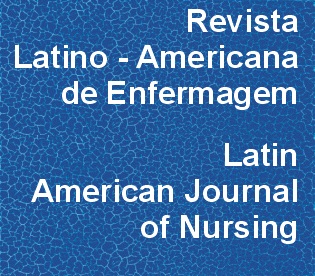Aspectos psicossociais do trabalho e distúrbios psíquicos menores na enfermagem
uso de modelos combinados
DOI:
https://doi.org/10.1590/1518-8345.2769.3068Palavras-chave:
Saúde do Trabalhador, Ambiente de Trabalho, Estresse Psicológico, Transtornos Mentais, Pessoal de Saúde, Equipe de EnfermagemResumo
Objetivo: analisar o uso de modelos combinados para a avaliação dos aspectos psicossociais no trabalho e sua associação com a prevalência de Distúrbios Psíquicos Menores entre trabalhadores da enfermagem. Método: estudo transversal realizado com uma amostra de 285 trabalhadores de enfermagem. A coleta de dados foi realizada por meio da aplicação de questionário estruturado contendo características sociodemográficas, ocupacionais e os instrumentos Demand Control Support, Effort-Reward Imbalance e Self-Reporting Questionnaire. Realizou-se análise descritiva e regressão logística múltipla. Resultados: a prevalência de suspeição de Distúrbios Psíquicos Menores foi de 32,6%. As dimensões de ambos os modelos associaram-se à saúde mental. Os modelos completos Desequilíbrio Esforço-Recompensa e Demanda-Controle e Suporte Social preveem os Distúrbios Psíquicos Menores em maior grau do que o uso combinado dos modelos parciais. Conclusão: constatou-se que o modelo Desequilíbrio Esforço-Recompensa captou melhor a magnitude dos Distúrbios Psíquicos Menores nessa amostra de trabalhadores em comparação ao Demanda-Controle e Suporte social. Contudo, o uso de ambos os modelos teóricos revelou contribuições singulares na avaliação dos Distúrbios Psíquicos Menores e considerando a complexidade do adoecimento mental é importante que diferentes fatores sejam avaliados.



